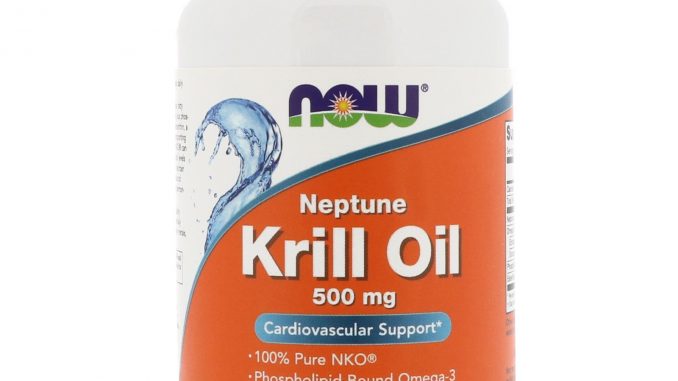
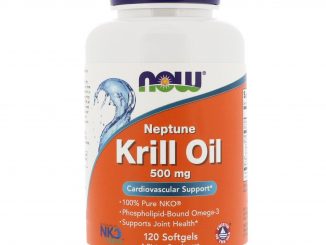
Neptune Krill Oil is manufactured under strict quality control standards. It is tested to be free of potentially harmful levels of contaminants (i.e. mercury, heavy metals, PCB’s, dioxins and other contaminants).
Neptune Krill Oil, 500 mg, 120 Softgels (Now Foods) – Ingredients
- Antarctic Krill (Euphausia Superba)Species: Euphausia Superba, Family: Euphausiidae, Domain: Animalia, The Best Supplements – Unique Ingredient Identifier: TBSI ID: IHD0E490.
- Omega-3 Acids
The omega-3 fatty acids are essential dietary nutrients and one of their important roles is providing the fatty acid with 22 carbons and 6 double bonds known as docosahexaenoic acid (DHA) for nervous tissue growth and function. Inadequate intakes of omega-3 fatty acids decrease DHA and increase omega-6 fatty acids in the brain. Human studies suggest that an adequate dietary intake of ω-3 PUFA can slow the age-related cognitive decline and may also protect against the risk of senile dementia. Omega-3 Fatty acids benefit multiple risk factors including blood pressure, blood vessel function, heart function and blood lipids, and they have antithrombotic, anti-inflammatory and anti-oxidative actions. Supplementation with Omega-3 (ω3) fatty acids is recommended in individuals with elevated blood triglyceride levels and patients with coronary heart disease.
Omega-3 Acids: Omega-3 Acids, The Best Supplements – Unique Ingredient Identifier: TBSI ID: IS317040, References: Brain / Mental Clarity: INNIS, Sheila M. Dietary Omega 3 Fatty Acids and the Developing Brain. Brain research, 2008, 1237: 35-43. PMID:18789910, LAYé, Sophie; et al. Anti-Inflammatory Effects of Omega-3 Fatty Acids in the Brain: Physiological Mechanisms and Relevance to Pharmacology. Pharmacological Reviews, 2018, 70.1: 12-38. PMID:29217656, Cardiovascular Support: MORI, Trevor A. Marine OMEGA-3 Fatty Acids in the Prevention of Cardiovascular Disease. Fitoterapia, 2017, 123: 51-58. PMID:28964873, JAIN, A. P.; AGGARWAL, K. K.; ZHANG, P. Y. Omega-3 Fatty Acids and Cardiovascular Disease. Eur Rev Med Pharmacol Sci, 2015, 19.3: 441-5. PMID:25720716.
- Eicosapentaenoic Acid (C20H30O2)
The omega-3 fatty acid eicosapentaenoic acid (EPA) has multiple actions potentially conferring cardiovascular benefit, including lowering serum triglyceride (TG) and non-high-density lipoprotein cholesterol (non-HDL-C) levels and potentially reducing key steps in atherogenesis. Eicosapentaenoic Acid: Eicosapentaenoic Acid, EPA, Timnodonic Acid, Icosapent,
Eicosapentaenoic Acid: Eicosapentaenoic Acid, EPA, Timnodonic Acid, Icosapent,
PubChem CID: 446284,
Chemical Abstracts Service: CAS: 10417-94-4,
ChemIDplus: 10417-94-4,
FDA Substance Registration System – Unique Ingredient Identifier: UNII: AAN7QOV9EA,
The Best Supplements – Unique Ingredient Identifier: TBSI ID: ISBF7F70,
References:
Cardiovascular Support: GOLZARI, Mohammad Hassan; et al. Effect of Eicosapentaenoic Acid (EPA) Supplementation on Cardiovascular Markers in Patients With Type 2 Diabetes Mellitus: A Randomized, Double-Blind, Placebo-Controlled Trial. Diabetes & Metabolic Syndrome: Clinical Research & Reviews, 2018, 12.3: 411-415. PMID:29588138, BRINTON, Eliot A.; MASON, R. Preston Prescription omega-3 Fatty Acid Products Containing Highly Purified Eicosapentaenoic Acid (EPA). Lipids in health and disease, 2017, 16.1: 23. PMID:28137294,
Brain / Mental Clarity: BAZINET, Richard P.; et al. Brain Eicosapentaenoic Acid Metabolism as a Lead for Novel Therapeutics in Major Depression. Brain, behavior, and immunity, 2019, Jul 3: . PMID:31278982, CEDERHOLM, Tommy; SALEM JR, Norman; PALMBLAD, Jan ω-3 Fatty Acids in the Prevention of Cognitive Decline in Humans. Advances in nutrition, 2013, 4.6: 672-676. PMID:24228198.
- Docosahexaenoic Acid (C22H32O2)
Docosahexaenoic acid (DHA), a polyunsaturated fatty acid (PUFA) enriched in phospholipids in the brain and retina, is known to play multi-functional roles in brain health and diseases. The inclusion of plentiful DHA in the diet improves learning ability, whereas deficiencies of DHA are associated with deficits in learning. DHA is taken up by the brain in preference to other fatty acids. DHA inhibits the development of inflammation in endothelial cells, alters the function and regulation of vascular biomarkers, and reduces cardiovascular risk. Docosahexaenoic Acid: Docosahexaenoic Acid, DHA, Doconexent, Cervonic acid,
Docosahexaenoic Acid: Docosahexaenoic Acid, DHA, Doconexent, Cervonic acid,
PubChem CID: 445580,
Chemical Abstracts Service: CAS: 6217-54-5,
ChemIDplus: 6217-54-5,
FDA Substance Registration System – Unique Ingredient Identifier: UNII: ZAD9OKH9JC,
The Best Supplements – Unique Ingredient Identifier: TBSI ID: IS3567E0,
References:
Brain / Mental Clarity: SUN, Grace Y.; et al. Docosahexaenoic Acid (DHA): An Essential Nutrient and a Nutraceutical for Brain Health and Diseases. Prostaglandins, Leukotrienes and Essential Fatty Acids, 2018, 136: 3-13. PMID:28314621, HORROCKS, Lloyd A.; YEO, Young K. Health Benefits of Docosahexaenoic Acid (DHA). Pharmacological research, 1999, 40.3: 211-225. PMID:10479465,
Cardiovascular Support: YAMAGATA, Kazuo Docosahexaenoic Acid Regulates Vascular Endothelial Cell Function and Prevents Cardiovascular Disease. Lipids in health and disease, 2017, 16.1: 118. PMID:28619112. - Docosahexaenoic Acid (C22H32O2)
- Astaxanthin (C40H52O4)
Astaxanthin: Astaxanthin, Astaxanthine, Ovoester, PubChem CID: 5281224, Chemical Abstracts Service: CAS: 472-61-7, ChemIDplus: 472-61-7, FDA Substance Registration System – Unique Ingredient Identifier: UNII: 8XPW32PR7I, The Best Supplements – Unique Ingredient Identifier: TBSI ID: ISB2D540, References: Cardiovascular Support: FASSETT, Robert G.; COOMBES, Jeff S. Astaxanthin, oxidative stress, inflammation and cardiovascular disease. Future cardiology, 2009, 5.4: 333-342. PMID:19656058, FASSETT, Robert G.; COOMBES, Jeff S. Astaxanthin: a potential therapeutic agent in cardiovascular disease. Marine drugs, 2011, 9.3: 447-465. PMID:21556169. - Eicosapentaenoic Acid (C20H30O2)
- Omega-3 Acids
| Supplement Facts | ||
|---|---|---|
| Name: | Neptune Krill Oil, 500 mg, 120 Softgels | |
| Serving Size: | 2 Softgels | |
| Servings Per Container: | 60 | |
| Amount Per Serving | % Daily Value | |
| Calories | 10 | |
| Total Fat | 1 g | 1%×) |
| NKO (Neptune Krill Oil) (Euphausia Superba) | 1 g (1,000 mg) | † |
| Omega-3 Fatty Acids | 230 mg | † |
| Eicosapentaenoic Acid (EPA) | 120 mg | † |
| Docosahexaenoic Acid (DHA) | 70 mg | † |
| Phospholipids | 390 mg | † |
| Esterified Astaxanthin | 750 mcg | † |
| ×) Percent Daily Values are based on a 2,000 calorie diet. † Daily Value not established. |
||
| Manufacturer: | Now Foods |
|---|---|
| Manufacturer Code: | 01626 |
| UPC Code (gtin12): | 733739016263 |
| Package Quantity | |
| Count | 120 |
Other ingredients
Softgel capsule (bovine gelatin, glycerin, water) and glycerin.
Contains shellfish (krill).
Not manufactured with yeast, wheat, gluten, soy, milk, egg or fish ingredients. Produced in a GMP facility that processes other ingredients containing these allergens.
Neptune Krill Oil, 500 mg, 120 Softgels – Suggested Use
Take 2 softgels 1 to 3 times daily with food.
| Recommended Intake | |||
|---|---|---|---|
| Dose Unit | Dose Value | Frequency | Target Population |
| softgel | 2 | 1 to 3 times daily | adults |
Warnings
- Caution: For adults only. Consult physician if pregnant/nursing, taking medication (especially anticoagulant or anti-platelet medications), or have a medical condition. Do not use this product if you have a seafood allergy. Keep out of reach of children.
- Natural color variation nay occur in this product.
- Do not eat freshness packet. Keep in bottle.
- Store in a cool, dry place after opening.
Dietary supplements similar to Neptune Krill Oil, 500 mg, 120 Softgels (Now Foods)
The Neptune Krill Oil, 500 mg, 120 Softgels (Now Foods) dietary supplement is available in Papua New Guinea and many others countries around the world. In Papua New Guinea this supplement contains: Antarctic Krill, Astaxanthin, DHA, EPA and Omega-3 Acids in its composition.


























































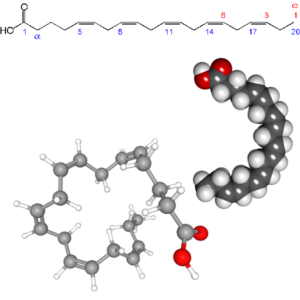
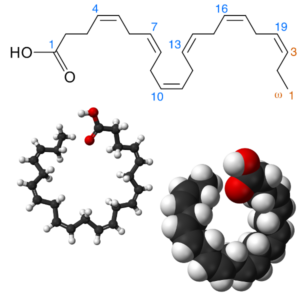
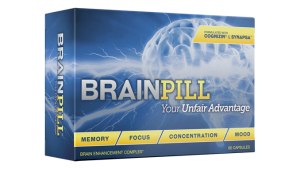
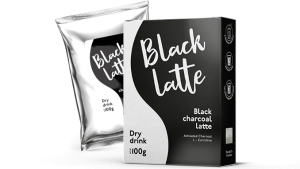
Leave a Reply